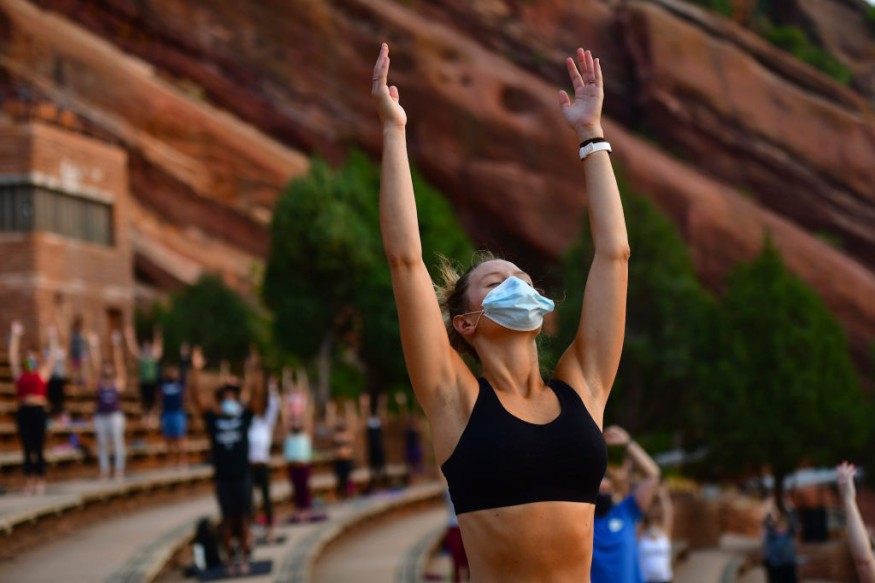Researchers say regular exercise can help protect against hospitalizations due to COVID-19 severity. In their new study, the authors found that COVID-19 patients who exercised regularly before they got infected with the virus were the least likely to be confined at hospitals, admitted to the ICU, and eventually die due to their disease.
CNBC reported that for quite some time now, research has been showing how regular exercise provides a slew of health benefits such as helping to stop the rise of blood pressure and type 2 diabetes.
This new study is led by a team of researchers and physicians at Southern California-based Kaiser Permanente Fontana Medical Center, San Diego-based University of California, and other institutions.
ALSO READ: Chicken Antibodies in Warding Off COVID-19 Infections On Humans

Activity Levels Measured
The study entitled "Physical inactivity is associated with a higher risk for severe COVID-19 outcomes: a study in 48 440 adult patients," which is published in BMJ Journals examined data from almost 50,000 adult patients in California who were diagnosed with COVID19 between January 2020 and end-October 2020.
To measure their levels of activity, the study authors asked each of the patients to self-report the exact amount of time they spent exercising each week.
After assessing their weekly physical activity with their COVID-19 response, the study investigators found that patients who were constantly inactive, with less than 10 minutes a week of exercise, had greater hospitalization risk, admission to the ICU and were likely to die compared to those who exercised for more than 150 minutes each week.
According to family and sports medicine physician, Dr. Robert Sallis of the Kaiser Permanente Fontana Medical Center, who conducted this research, even after they controlled for variables like obesity and smoking in their analysis, they still observed inactivity was strongly linked to much higher chances of hospital confinement, admission at the ICU and death compared with moderate exercise or any activity at all.
Type of Exercise Against COVID-19 Severity
As for the kind of exercise, Sallis proposed following the United States Physical Activity Guidelines. He said adults should need to do at least 150 minutes and a maximum of 300 minutes each week of moderate-intensity physical exercise, or 75 to 150 minutes each week of vigorous-intensity aerobic physical exercise.
However, Sallis also said that even a basic proposed exercise level like a 30-minute walk every day, five days each week, is enough to help the body combat various diseases including COVID-19.
The study authors are recommending initiatives to promote physical activity, specifically, regular exercise is prioritized by public health agencies and integrate into routine medical care.
Another research entitles, Physical exercise as a tool to help the immune system against COVID-19: an integrative review of the current literature, the National Institutes of Health published in June associated regular exercise with a boost in immune-system response, which could function as a tool in aiding combat COVID-19, said the researchers.
Does Exercise Intensity Matter?
Another study, published in the Science Daily specified, though that exercise intensity could matter. It found that slow walkers were nearly four times more likely to die from COVID-19 compared to brisk walkers.
The study's lead researcher said, they already know that obesity and frailty are key risk factors for outcomes of COVID-19. This is the first-ever research to present that slow walkers have higher chances of contracting severe COVID-19 infections, regardless of their weight.
A related report is shown on CNA's YouTube video below:
RELATED ARTICLE : It May Feel Uncomfortable, But Wearing Mask During Exercise Should Not Damage Oxygen Intake
Check out more news and information on COVID-19 on Science Times.











